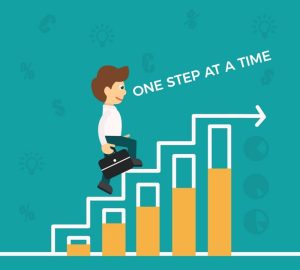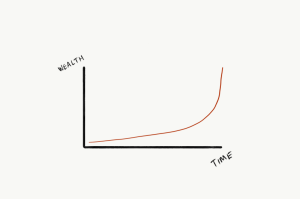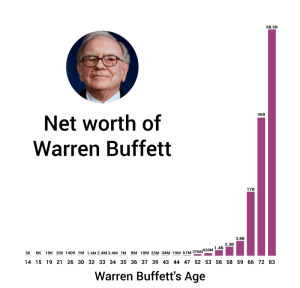Success Adds Up — It Doesn’t “Happen” Overnight

Do you have a long list of goals, desires, and wants for your life?
Do you want to learn more? Earn more? Improve your skills?
Get the most out of your relationships? Live better?
All those things are good. Life is about moving forward and making consistent progress.
However, there’s one important thing about all this working, hustling, striving, and achieving more: You can’t do everything at the same time.
That’s common sense, right? You only have so much time and energy. So if you take on too many things, you end up spread too thin.
Instead, it’s much more effective to focus your effort on one thing.
Do you have an extensive tally of aspirations, wishes, and cravings that you hope to achieve in your lifetime?
Are you interested in expanding your knowledge, increasing your income, or enhancing your abilities?
Do you want to optimize your relationships and enhance your overall well-being?
All of those things are positive. The journey of life involves continuously advancing and achieving steady improvement.
There is a crucial aspect to the act of working hard, striving for success, and accomplishing more, which is that it is impossible to do everything simultaneously.
It is logical to understand that one’s time and energy are limited. Therefore, undertaking numerous tasks may result in being stretched too thin.
It is more efficient to concentrate your energy on a single task.
Success Adds Up

Achieving genuine success requires concentration on individual tasks. I first realized this concept during my high school years, specifically while studying for my final exams. Rather than attempting to cram a multitude of subjects into one study session, I concentrated on mastering one topic before moving onto the next.
I observed that by dedicating a few consecutive days to immerse myself in a subject, I could learn it much more quickly. Whereas many of my peers tackled multiple subjects in a day. However, I never approved of this method as I believe it is too scattered.
to one project at a time. By avoiding multitasking, I am able to complete tasks efficiently and with better quality. Therefore, I have found that focusing on one project at a time increases my productivity and helps me achieve more. I’m sorry, but your request is incomplete. Please provide the paragraph which needs to be paraphrased.
Gary Keller and Jay Papasan, authors of The One Thing, which is a great book about this same concept, said it best:
“Where I’d had huge success, I had narrowed my concentration to one thing, and where my success varied, my focus had too.”
Are you working on a lot of things?
Is your attention not on one thing?
There’s a big chance that you will not achieve the best possible results or worse: You might fail if you try to achieve many things at the same time.
The reason is simple: Most of us believe that success happens all at once. Real life is different. Keller and Papasan put it well:
“Success is sequential, not simultaneous.”
As time goes by and you acquire more skills and complete various projects, your accomplishments accumulate to create an impressive achievement.
When it comes to money, the majority of individuals accumulate it gradually through hard work. It is rare for someone to amass a significant amount of wealth in a sudden fashion, unlike those like Conor McGregor and Evan Spiegel who have experienced immense success in their careers.
Having particular abilities or expertise is not necessary for achieving success in life. By following a gradual path to attain each objective and steadily accumulating wealth, you increase your chances of leading a fulfilling life.
The concept is easy and consistently effective. Those who argue otherwise likely haven’t taken the time to implement it in their own existence.
One of my mentors possesses multiple properties worth millions, which he accumulated gradually over time. Although he is now in his sixties, he demonstrates that accumulating wealth requires patience and compounding to achieve significant results.
And these are not extraordinary things. I’m not promising you a gold medal at the 2020 Olympics or that you’ll become the next Zuckerberg.
Everyone can save money, improve their skills, and create wealth.
The Impact Of Long-Term Compounding

Although it may sound cliché, consider Warren Buffett as an illustrative example of how one can amass a fortune through hard work and persistence over a prolonged period.
Focus on the growth in comparison rather than the numerical values or arbitrary x-axis.
From the age of 32 to 44, Buffett’s net worth increased by an impressive 1257%. This shows remarkable progress over a period of 12 years, despite the fact that he suffered major financial losses in his forties. However, this is not the main focus of discussion.
Observe this information: Warren Buffett’s net worth underwent an extraordinary increase of 7268% between the ages of 44 and 56, although luck may play a part in such figures.
Furthermore, a significant portion of his wealth is reliant on the value of stocks, implying that it could disappear suddenly. Despite this uncertainty, the amount he has gained over time is what matters.
Here’s another point to consider: Buffett amassed 99% of his wealth after turning 50. It puts things in perspective when compared to all the entitled young people, including myself, who are frustrated by the pace of their career growth.
There is an abundance of online content glorifying Warren Buffett, and many individuals falsely claim that investing in the stock market is a surefire way to become wealthy. They promote their courses as containing exclusive information for achieving financial success.
I don’t agree with that statement. In my opinion, regular people should avoid getting involved in trading on Wall Street. Personally, I have a dislike for trading and prefer to invest in index funds and real estate.
Buffett exemplifies sequential success, where small actions accumulate over time to achieve significant accomplishments.
The aforementioned concept is applicable not just to finance, but also to abilities, well-being, and connections.
It’s not possible to develop a robust physique quickly, within days or months, or even in a year. It takes several years of persistent hard work. There are no shortcuts to obtaining success, no matter how clever you are in your approaches.
An instance of this can be seen where young cyclists, who are below 28 years, seldom emerge victorious in major cycling competitions such as The Tour De France. This can be attributed to the fact that it requires a considerable amount of time for them to develop the required physical and mental attributes like power, endurance, and determination which are essential for winning these races.
To witness the effects of compounding in your personal life, you must concentrate on a single task at a time, considering all aspects of your life and examining the broader situation.
The bottom line is that success can be achieved through hard work. It’s not important whether it occurs tomorrow or many years from now; what matters is that it will eventually happen.
Author
Shahriar Ibne Azam, Sr. Digital Marketing Specialist
sazam@insightintechnology.com
